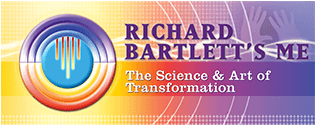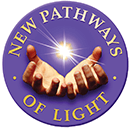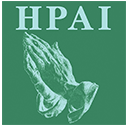
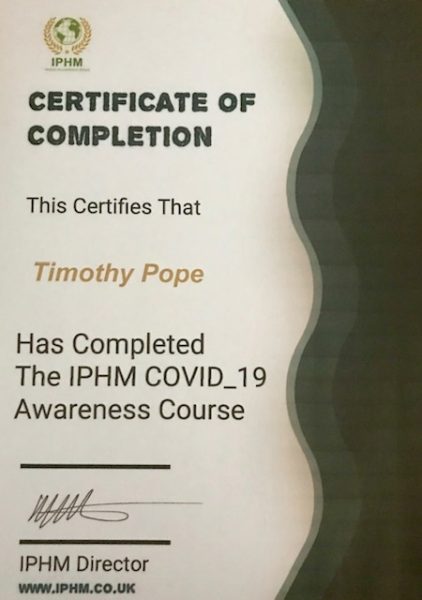 Mental Health and Emotional Wellbeing
Mental Health and Emotional Wellbeing
in the Wake of the Pandemic
The ongoing impact of COVID-19 continues to reveal itself not only through physical health concerns but also through a growing wave of emotional and psychological distress. Anxiety, depression, and stress have emerged as some of the most common psychological symptoms during and after the unprecedented period of lockdown and uncertainty. Often overlooked, these silent challenges have become a significant side effect of the pandemic.
Children, in particular, are still showing increased signs of social anxiety, often reflecting the stress they witness in adults around them. This may lead to behaviour changes, including disruptions at school or at home, as they struggle to process their emotions in an unstable environment.
Even before the pandemic, mental health concerns such as anxiety were steadily on the rise. General practitioners have long been on the frontlines, frequently prescribing antidepressants and referring patients for talking therapies. Unfortunately, such therapies are not always accessible in a timely manner, many face long waiting lists, often spanning several months. When someone is suffering from depression, anxiety, or overwhelming stress, immediate support can be crucial.
A 2021 UK government survey reported that 30% of the population is experiencing moderate to severe depressive symptoms, while 25% are regularly coping with anxiety. These numbers reflect an urgent need for more holistic, accessible, and compassionate support.
With over 25 years of experience, I offer a gentle, empathetic approach to healing. I support individuals in understanding the root causes of their emotional distress and guide them toward a more balanced and healthy way of being. My practice includes working with the individual’s energy field to provide relief from symptoms, as well as teaching tools and techniques to foster long-term resilience and self-care. This support is available both in person and remotely, distance is not a barrier to healing.
Many people are unaware that the increasing emotional sensitivities may also be linked to subtle but significant shifts in the Earth’s energetic frequencies. Since the planetary consciousness shift around 2012, more individuals have found themselves struggling to stay grounded. Understanding how to harmonize with these new frequencies by raising one’s own vibration and aligning with Earth’s evolving energy, can offer profound relief and insight. This is not something typically addressed in conventional medicine, but it plays a crucial role in emotional and energetic wellbeing. (See: Schumann Resonance)
Every individual processed this time differently. While some appear to have coped outwardly, many others silently struggled, whether due to loss, isolation, financial hardship, trauma, or the unpredictability of the future. Healthcare workers, those grieving loved ones, or those trapped in difficult domestic situations are among the many facing invisible emotional burdens.
Post-Traumatic Stress Disorder (PTSD) is expected to rise significantly in the aftermath of the pandemic, but support is available now. Early intervention can reduce the long-term psychological toll and help individuals restore a sense of balance and control.
I offer both in-person and remote sessions from my therapy centre and on-line from home during lockdown periods. These sessions can support individuals in understanding the intricate relationship between mind, body, and energy, and in initiating meaningful change within themselves.
It’s important to recognise that this global event has awakened deeply ingrained, primal fears, fear of illness, loss, separation, and survival. These are encoded within us and can be triggered by abrupt life changes. Unlike technology, which adapts quickly, human beings thrive on routine and predictability. Sudden disruption creates emotional instability, and for many, this has led to profound fear for both the present and the future.
We are, collectively, forming new habits and perspectives during this period of reflection. As industries, workplaces, and daily life evolve, many people are feeling emotionally unprepared to face this new world. Older adults, in particular, may feel especially isolated, often without access to digital tools or online support services that others rely on.
Some individuals will come through this time with increased resilience, drawing strength from adversity. However, many others will internalise their distress, choosing to suppress their fears rather than express them. This unspoken pain may quietly accumulate, potentially leading to PTSD and other emotional difficulties later on.
Acknowledging these experiences now and seeking support, whether through traditional or complementary approaches, can help prevent long-term mental health challenges. There is help available. Healing is possible, and it begins with understanding, compassion, and a willingness to support the mind, body, and spirit.
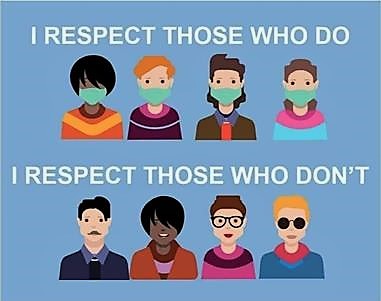
Navigating Differing Perspectives on COVID-19
Vaccination or no vaccination. Mask or no mask.
Public discussion in the UK, and globally, has become increasingly divided around the topics of vaccines and face coverings. Some people strongly believe in the protective power of vaccines and masks to reduce the spread of COVID-19. Others are more sceptical, viewing these measures as ineffective or even as mechanisms of control and division, often raising concerns about the economic benefits to certain parties.
This divide has led to tensions, with language such as “selfish” used to describe individuals who choose not to get vaccinated, or frustration expressed toward those who do not wear masks. These reactions can create emotional barriers and polarise communities further.
It’s important to recognise that not everyone’s circumstances are visible. Some people may have private medical or psychological reasons for their choices, reasons that deserve respect and understanding. Whether someone is wearing a mask or not, vaccinated or unvaccinated, we must remember that judgment and confrontation rarely lead to meaningful change.
Respect and Responsibility
Regardless of where you stand on these issues, practicing mutual respect and tolerance is essential. Be informed about and adhere to your local health guidelines, but also try to respond with compassion to those whose choices differ from your own.
Instead of reacting with anger or fear, accept that others may be making the best decisions they can based on their unique experiences. Life is complex, and not everything is black and white.
Above all, do what feels right for your own safety and peace of mind. And please, try not to make assumptions about others. We’re all navigating this time in our own way.
On Conspiracy Theories and Collective Experience
There are numerous theories circulating about the origins and handling of the pandemic. While this isn’t the place to delve into them, what’s undeniable is the profound impact COVID-19 has had across the globe, emotionally, mentally, and spiritually.
This period of uncertainty can serve as an opportunity for growth. As a collective, humanity is being challenged to face fear, release old patterns, and move toward a consciousness grounded in compassion, unity, and love.
By acknowledging and processing our fears, we create space for emotional and spiritual transformation. When many individuals undergo this shift, the ripple effect can help raise the collective vibration and promote healing on a broader scale.
If you’re struggling during this time, it’s okay to ask for help. Processing your emotions now can prevent long-term emotional strain later. Please reach out if you need support, I’m here to help you navigate this period so that it becomes a turning point toward positive change in your life.
Mental and Emotional Health
COVID-19 has caused a significant rise in mental health challenges, particularly anxiety and depression. These are complex conditions often influenced by ongoing stress, inflammation, and even disruptions in gut health.
How Stress Affects the Body
- Chronic stress increases inflammation, which can disturb gut microbiome balance and gut barrier integrity.
- These dysfunctions are linked to mood disorders like anxiety and depression.
- Interestingly, how we perceive stress affects our health more than the stressor itself. Mindset matters.
Supportive Interventions
Mindfulness & Meditation
Mindfulness-Based Stress Reduction (MBSR) can improve symptoms of anxiety, depression, and emotional distress. Just a few minutes a day can make a difference. Try simple breathing techniques such as:
- 4-4-8 breathing: Inhale for 4 counts, hold for 4, and exhale for 8. Do this for one minute daily.
Apps such as Calm and Headspace offer accessible guidance for meditation and relaxation.
Physical Activity
Regular exercise boosts endorphins and improves resilience to stress. Aim to be active in a way that feels enjoyable and sustainable for you.
Gratitude Practice
Keeping a gratitude journal can significantly improve emotional well-being. Simply noting five things you’re grateful for each week can increase happiness by up to 25%.
Acts of Kindness
Being kind benefits not just others, it supports your own immune function, heart health, and emotional resilience. Kindness is truly healing.
Nutritional Support for Mental Health
Supporting your gut health can significantly impact your mood and energy levels.
Key Actions:
- Take a quality probiotic: Probiotics and prebiotics can help reduce the stress response, repair the gut lining, and lower inflammation.
- Consume fermented foods: Such as kefir, kombucha, and sauerkraut.
- Eat prebiotic-rich foods: Chicory, Jerusalem artichokes, olives, and baked apples.
- Focus on gut-healing nutrients:
- Vitamin A
- Vitamin D3
- L-Glutamine
- Zinc
Reduce inflammation by:
- Cutting back on omega-6 fats from processed oils and red meat
- Increasing omega-3s from oily fish, flaxseeds, and leafy greens
- Adding turmeric, ginger, and antioxidant-rich foods (e.g. avocados, berries, citrus fruits)
Mood-Boosting Nutrients:
- Tryptophan: Found in oats, bananas, turkey, and walnuts
- Vitamin B6 & Magnesium: Support serotonin production
- Vitamin D3 and Zinc: Vital for mood and immune function
For trusted supplements, you might consider brands such as Cytoplan.
Five Steps to Well-being
- Connect with others – meaningful relationships matter
- Be physically active – move in ways that energise you
- Learn new skills – mental stimulation improves resilience
- Give to others – small acts of generosity can transform your outlook
- Be present – mindfulness helps you appreciate what is here, now
Practical Stress-Relief Tips
- Avoid unhelpful habits like smoking, excessive drinking, or drug use
- Prioritise physical and mental activity daily
- Take control where you can, and let go where you can’t
- Dedicate time to yourself each week
- Volunteer or help others, it’s mutually beneficial
- Set small, achievable goals
- Learn to work smarter, not harder
- Practice gratitude and positivity
- Stay in the moment
You Are Not Alone
Navigating a global crisis is difficult, and it’s natural to feel overwhelmed. But remember, there are tools, practices, and support systems available. Whether through mindfulness, nutrition, emotional support, or professional guidance, healing is possible.
If I can support you on this journey, please don’t hesitate to reach out. Let this period not be defined by hardship, but by personal growth, healing, and transformation.


